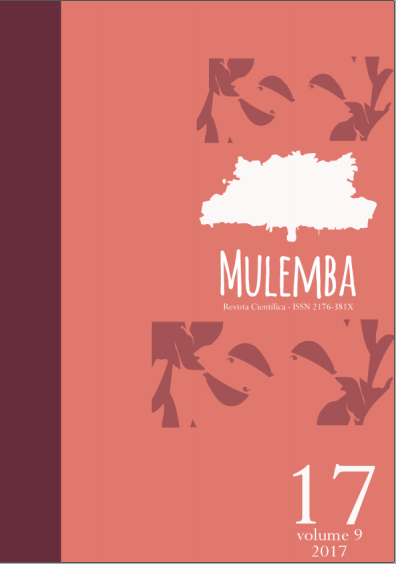“It was as if I had become an Orphan Twice Over”: Orphanhood in O Tibete de África
DOI:
https://doi.org/10.35520/mulemba.2017.v9n17a11637Keywords:
orphan, decolonization, return, trauma, Margarida Paredes.Abstract
Working as a countercurrent to the imperial rhetoric around the patriarchal family and home, the literary trope of the orphan offers a critical view of the Portuguese colonial and postcolonial experience, emphasizing the anxieties and traumas that were felt in the context of the end of the Empire, the Decolonization process and the return of settlers and their descendants to Portugal. The experience between worlds (the Portuguese and the African), which characterizes the trajectory of the protagonist of O Tibete de África -- a novel published by Margarida Paredes in 2006 -- manifests itself in a state of double orphanhood stemming from her father's death and subsequent disintegration of the family, as well as from the loss of her place of origin - Angola. This essay delves into this orphan journey, which has obvious symbolic repercussions.References
BERTHIN, Christine. Gothic Hauntings: Melancholy Crypts and Textual Ghosts. Basingstoke: Palgrave Macmillan, 2010.
FALCONI, Jessica. O sal da terra. Buala. 2 ago. 2011. Disponível em < http://www.buala.org >. Acesso: 15 set. 2016.
KHAN, Sheila. Memória Colonial - O Tibete de África de Margarida Paredes. Jornal de Letras, Artes e Ideias, Ano XXVII / n. 959, p. 23, 2007.
MARGARIDO, Alfredo. Estudos sobre literaturas das nações africanas de língua portuguesa. Lisboa: A regra do jogo, 1980.
PAREDES, Margarida. O Tibete de África. Vila do Conde, Verso da História: 2015.
_____. Folheando com... Margarida Paredes. Portal da Literatura, 22 jun 2016. Disponível em < http://www.portaldaliteratura.com>. Acesso: 15 set. 2016.
PETERS, Laura. Orphan Texts: Victorian Orphans, Culture and Empire. Manchester: Manchester UP, 2000.
Downloads
Published
Issue
Section
License
Authors who publish with this journal agree to the following terms:
- Authors retain copyright and grant the journal right of first publication with the work simultaneously licensed under a Creative Commons Attribution License that allows others to share the work with an acknowledgement of the work's authorship and initial publication in this journal.
- Authors are able to enter into separate, additional contractual arrangements for the non-exclusive distribution of the journal's published version of the work (e.g., post it to an institutional repository or publish it in a book), with an acknowledgement of its initial publication in this journal.
- Authors are permitted and encouraged to post their work online (e.g., in institutional repositories or on their website) prior to and during the submission process, as it can lead to productive exchanges, as well as earlier and greater citation of published work (See The Effect of Open Access).

